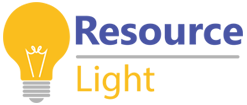- Equipment Financing

-
How to Lease Used Vehicle for Work Vendor Finance Program Printing Equipment Finance Inline Boring Machine Leasing List of Vehicles Section 179 Qualifying Glass Etching Equipment Mulching Equipment Lease Business Forklift Financing Rotary Filling Machinery Commercial Semi Liquid Vacuum Truck Leasing Horizontal Panel Saw Financing Finance Sweeper Trucks Woodworking Equipment Financing Equipment Leasing Company Boom Truck Financing Used Medical Imaging Equipment Band Saw Financing Used Drilling Rig Financing Down The Hole Drill Financing Recycling Truck Financing Plastic Stamping Equipment Financing Financing Dental Table Financing Recycling Equipment Financing Book Scanner Leak Detection Device Financing Financing Examining Room Equipment Rooftop HVAC Financing Finance Front Loader Truck Financing Rate High Cost Wheel Balancer Equipment Financing Company Cars And SUVs Finance No Lending To Startups Irrigation Systems Financing Mechanical Router Financing Financing Video Lighting Equipment Financing Rock Drills Vacuum Unit Financing Small Business Equipment Lending Quote Monthly Payments Increase Sales Broadcasting Equipment Finance Five C Of Credit Evaluation Finance Shrink Wrapping Machine Rubber And Plastics Equipment Financing Technology Equipment And Software Finance Tension Pressing Equipment Financing Not Financing Costs You Money Cnc Milling Machine Finance Financing Water Well Drill Tank Truck Financing Office Desk Financing Rubber And Plastics Equipment Financing Side Loader Truck Financing Air Compressor Financing Boom Truck Financing
-
The Beginnings of Accounting
Accounting's roots are entwined with the origins of commerce itself, tracing back to our earliest civilizations. In the fertile crescent of ancient Mesopotamia, the Sumerians devised a simple but effective system of clay tokens to record livestock and crops. This system, though rudimentary by today's standards, planted the seeds for the complex financial accounting systems we use today.
Accounting in Ancient Civilizations
As societies evolved and trade systems advanced, the need for more sophisticated accounting methods became evident. Ancient Egyptians, for instance, kept detailed records of grain and livestock to facilitate trade and taxation. This practice highlighted the emerging role of accounting in governance and the economy.
Luca Pacioli: The Father of Modern Accounting
The Middle Ages brought about significant advancements in the field of accounting, with Italian mathematician Luca Pacioli leading the charge. While Pacioli did not invent double-entry bookkeeping, his 1494 manuscript, "Summa de Arithmetica, Geometria, Proportioni et Proportionalita," was instrumental in codifying and disseminating the method across Europe. His contributions laid the groundwork for the financial systems that shape today's global economy.
Modern Accounting: An Evolving Discipline
Today, accounting is a multifaceted field, integral to every aspect of our financial systems. It's a dynamic discipline, continually adapting to our changing world. But whether it's managing a Fortune 500 company's finances or balancing a personal checkbook, the essence of accounting remains: to record, categorize, interpret, and communicate financial information. This enduring relevance, from ancient clay tokens to sophisticated software, is a testament to accounting's pivotal role throughout history.
Pertinent Accounting Links
- Accountancy: This site gives a thorough description of accounting.
- Accounting Glossary: This dictionary of accounting terms will be helpful to those who want to become knowledgeable about the language accountants speak.
- Famous Accountants: This page describes the 3 most famous accountants throughout history.
- Online Accounting: Little by little, the world is going virtual—but did you ever think that accounting would, too?
- How to Become an Accountant: Has it been your lifelong dream to become an accountant? If so, you will benefit greatly from reading this detailed how-to article.
- How to Become a CPA: Are you a New York-based professional who wishes to become a certified public accountant? If so, reading this article will tell you all about the certification process.
- CPAs vs. Accountants: This article explains the difference between a certified public accountant and other types of accountants.
- Am I an Accountant or a Bookkeeper? This is a common question among recent graduates. Learn the factors that differentiate the two in this in-depth article.
- Salary for Accountant Jobs: Ever wonder how much accountants earn on a yearly basis? If so, look at this nationwide survey for the average salaries of U.S. accountants.
Common Accounting Terms
- "Accounts payable" – essentially means the bills a business has incurred that must be paid to its suppliers. ·
- "Cash-based accounting" –this simply translates to the practice of recording cash or check exchanges between a customer or client and a business, or a business and a supplier. ·
- "Trial balance" – this is a catalog of general ledger accounts and their totals. ·
- "Liabilities" is a well-known accounting term, but few people know its true meaning. Liabilities are the amounts of money that a business owes its creditors, including its payroll and accounts payable.
As in all trades, accountants speak their own language. There is a certain terminology that accountants use every day but that most laymen do not understand. These terms include:
·Who is considered the father of modern accounting?

